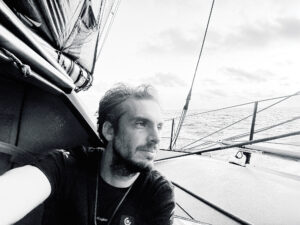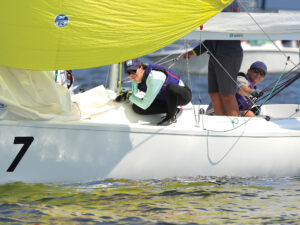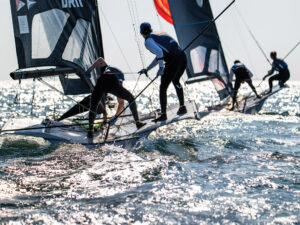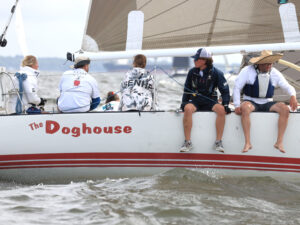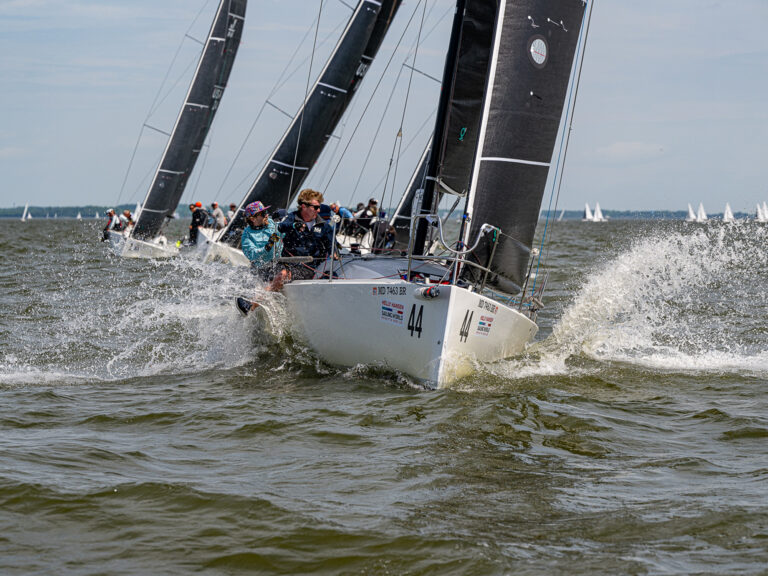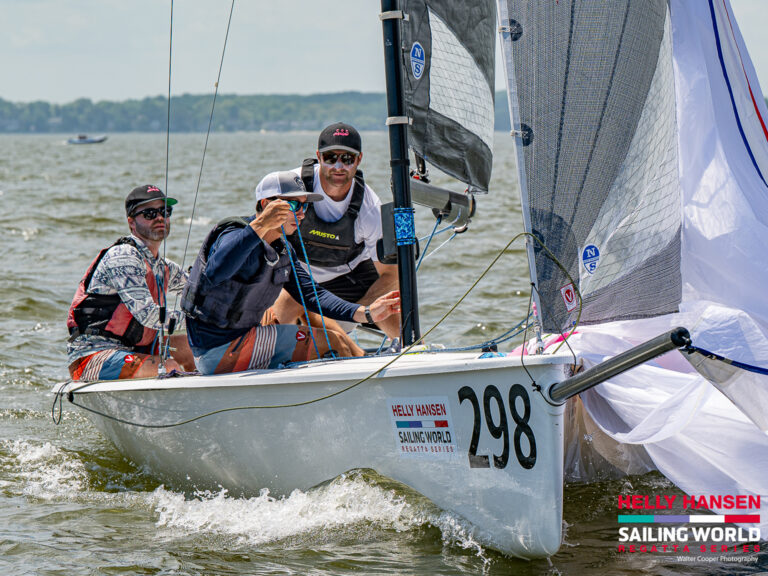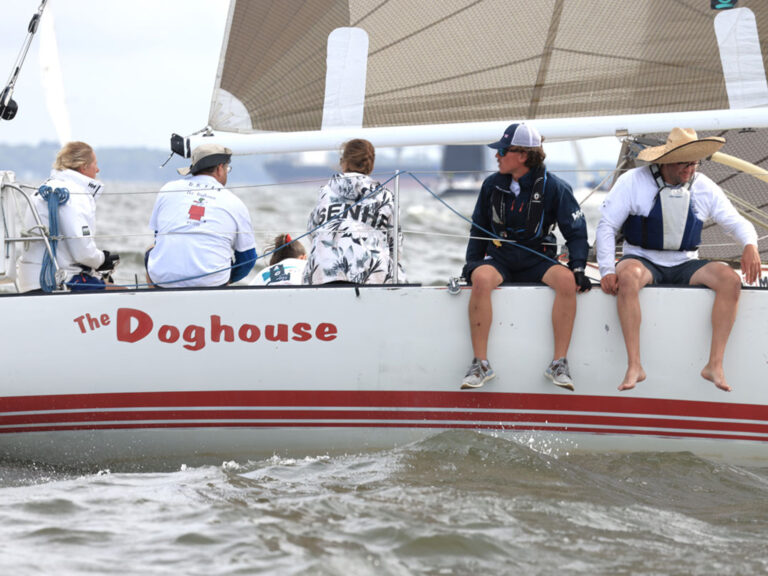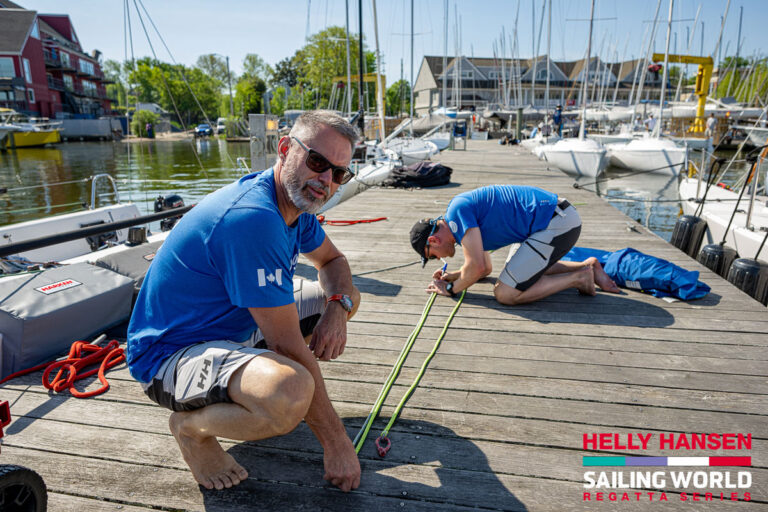I’ve always admired Roz Savage. Bored to death as a management consultant, at the age of 33 the British adventurer pulled the plug on her conventional life and went to sea—in a rowing boat. She started with the Atlantic, in 2005, and then kept rowing. She crossed the Pacific, in three stages between 2008-2010, and then stroked her way across the Indian Ocean this year. She arrived in Mauritius on October 4, becoming the first woman to row solo across three oceans. In all, she has covered 10,000 miles, and thrilled thousands of Walter Mittys with her energetic blogging and insightful videos. Along the way she became an outspoken advocate for the environment and the oceans.
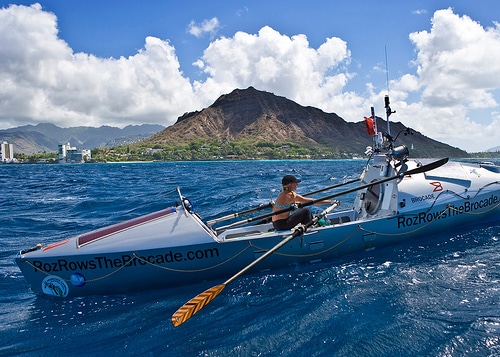
www.flickr.com
I caught up with Roz while she was traveling the East Coast, and managed to speak with her as she was making her way toward the Apple store in Manhattan for a technology fix:
**What made you quit the real world and go to sea?
**It was the realization that they just weren’t paying me enough to be that miserable. I was doing a job I didn’t like to buy stuff I didn’t need. The insanity of it suddenly dawned on me. So I had to do some serious thinning about what would make me happy. I sat down and wrote the two versions of my own obituary, the one that I wanted, and the one that I was heading for, and realized that working in an office cubicle was definitely not the legacy I wanted to leave to the world.
**What do you love most about being at sea?
**I actually find it very tough out there. It’s definitely not my natural habitat, and I’m always relieved to get back to dry land. At the same time, I do enjoy the solitude and perspective it gives me on what’s important in life. You realize how little stuff you actually need. And you also realize how amazing and how powerful nature is. She has a way of really letting you know who is boss when you’re facing 20-foot waves and adverse winds.
**Do you have any favorite moments?
**There have been some pretty amazing things that I’ve seen, especially at the nighttime. I saw a moonbow, something I didn’t even know existed. It’s what you get when there is a really, really bright moon and a rain shower, and it’s like a rainbow but it’s sort of monochrome. That was very cool. Of course there is the wildlife as well. Probably the coolest creature I’ve ever seen was the baby whaleshark that spent about 20 minutes swimming around my boat.
**What have been the most difficult moments?
**Well, capsizing is never fun. I did that a couple of times this year and three times back in 2007. That’s just miserable really. But apart from the capsizing, in between the capsizes you are wondering when the next big wave is going to hit. I wouldn’t recommend it. It’s not a fun way to spend the night.
What do you think about Olly Hicks’ plan to try and row the Southern Ocean?
I’m a bit worried about Olly. I absolutely wish him all the best, but the Southern Ocean is just brutal. I wish he wouldn’t do it, but I know what it’s like when you get a bee in your bonnet, and you just really have to do something. So I completely understand why he is doing it, but I’ll be very relieved when he makes it back to dry land.
**Why row? Sailing is so much nicer.
**[Laughs] You’re right. I think sailors do have the right idea. I can’t tell you how many times that occurred to me this year. They get to go a lot faster for a lot less effort. But I am not very good at sailing, and I seem to have a bit of a mental block about it. So for me rowing was something that I had done before and it seemed that much more doable. And I suppose another attraction was that—probably for very good reason—there are very few people who have rowed across oceans. So if you’re trying to get sponsorship and bag a few world records, then there are more records to be had by rowing. The records aren’t really that important to me, but I have ended up with four of them.
**What have you seen at sea in terms of plastic and garbage?
**Most of the plastic is not very visible. I wish I had seen more conspicuous signs of it because if I could have brought back some really shocking photos that would have been really helpful. But most of it is isolated items or a thin soup of very tiny pieces. Still, when you read the estimates of how much plastic is really out there—like they guess three and a half million tons of trash in the North Pacific Garbage Patch alone, and that is just one of five gyres around the world—it really is quite staggering. Sometimes it surprises me that it’s not even worse than that when you look at just how much plastic we are generating every single day. The main thing is to just try and stop generating so much plastic in the first place. Once it gets into the ocean, it’s really challenging to try and get it back out.
**When you speak about the oceans and your voyages, what are your primary messages?
**The main message is more on the inspirational level. I think a lot of people are concerned about what’s happening in the environment. We sort of know intuitively that it’s just not sustainable to carry on the way that we are. But a lot of people feel like they really can’t make a difference. So my key message really is that every single action we take is helping to create our future. It took me five million oar strokes to row across three oceans. One oar stroke doesn’t get you very far. But if you take five million tiny actions, it really adds up. So I’d like to get everybody realizing that they’re having an impact on the future, and they have that power. But with that power comes responsibility, and we all just need to be a lot more mindful of how much we are using in the way of resources and stuff that we throw away, and where that’s going to. On a finite earth, what goes around comes around.
So having rowed all those oceans, what’s next? Roz plans to make a film with her “message of inspiration.” Beyond rowing, she’s also looking to do a lot more speaking, travel, and land-based adventure, “because the opportunity cost of spending five months in the middle of an ocean is just too high.” Oh, yes, she has also agreed to sail around Borneo.

